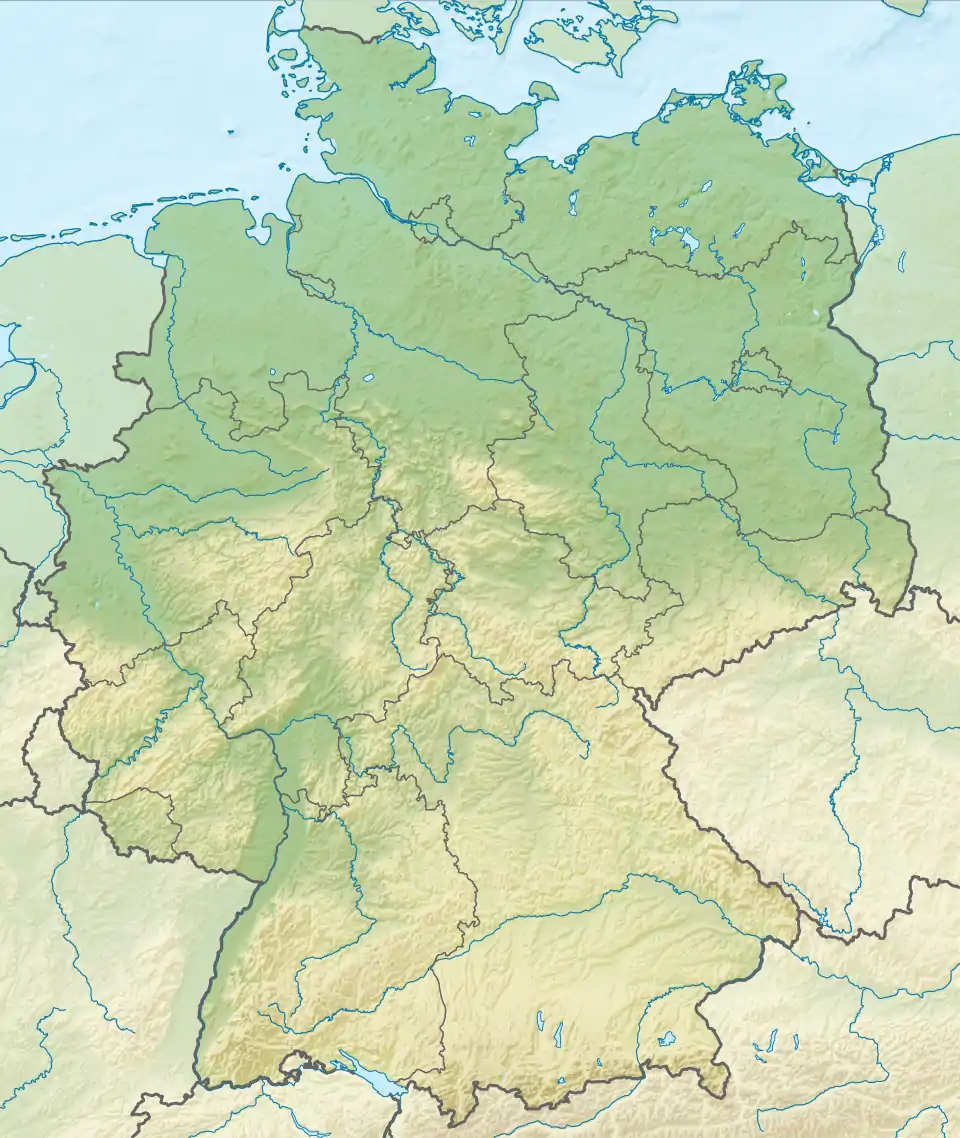Lichtenstein Cave
The Lichtenstein Cave, discovered in 1972, is an archaeological cave site near Dorste, Lower Saxony, Germany with a length of 115 m (377 ft). The skeletal remains of 21 female humans and 19 males, dated to the Bronze Age, about 3,000 years ago were discovered. In addition, around 100 bronze objects (ear rings, bracelets, and finger rings) and ceramic parts from the Urnfield Culture were found.
Lichtensteinhöhle | |
 location in Germany  Lichtenstein Cave (Germany) | |
| Location | near Dorste |
|---|---|
| Region | Lower Saxony, Germany |
| Coordinates | 51°43′28″N 10°10′27″E |
| Length | 115 m (377 ft) |
| History | |
| Periods | Bronze Age |
| Associated with | Homo sapiens |
| Site notes | |
| Excavation dates | 1972 |
Ancient DNA Tests
Both mitochondrial DNA and Y-chromosome DNA tests were conducted on the skeletons and published by the University of Göttingen. Mitochondrial haplogroups found included 17 from H, 5 from T2, 9 from U5b and 5 from J*. Out of the 19 males represented in the cave, 15 yielded the full 12 tested STR values, with twelve showing haplotypes related to I2b2 (at least four lineages), two to R1a (probably one lineage), and one to R1b predicted haplogroups. Y-STR results are given in the table below:
| HT | 393 | 390 | 19 | 391 | 385a | 385b | 439 | 389i | 392 | 389ii | 437 | 438 | Σ | Hg |
|---|---|---|---|---|---|---|---|---|---|---|---|---|---|---|
| Y1 | 13 | 25 | 16 | 11 | 13 | 17 | 11 | 12 | 11 | 28 | 15 | 10 | 6 | I2b2 |
| Y2 | 13 | 25 | 15 | 11 | 13 | 17 | 11 | 12 | 11 | 27 | 15 | 10 | 3 | I2b2 |
| Y3 | 13 | 23 | 14 | 11 | 11 | 14 | 12 | 13 | 13 | 29 | 15 | 12 | 1 | R1b |
| Y4 | - | - | (17) | (11) | - | - | (11) | 12 | - | - | - | 10 | 1 | I2b2 |
| Y5 | 13 | 25 | 15 | 11 | 11 | (13) | 11 | 13 | 11 | 30 | 14 | 11 | 2 | R1a |
| Y6 | 13 | 24 | 16 | 11 | 13 | 17 | 11 | 12 | 11 | 28 | 15 | 10 | 3 | I2b2 |
| nd | - | - | - | - | - | - | - | - | - | - | - | - | 3 | - |
() = allele unsure or assignment of an individual, nd = not determined